Iran Economy In 'Miserable State': Economist
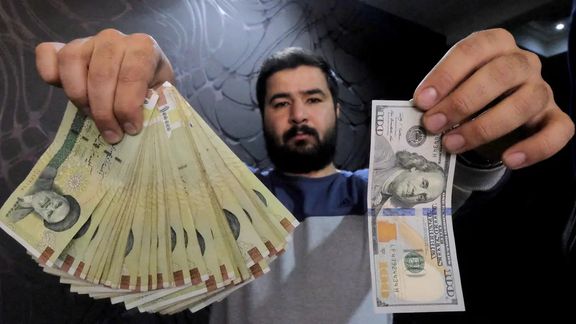
The Iranian rial has witnessed a 94% decline in the last decade as the economy plunges further into darkness, according to recent reports.

The Iranian rial has witnessed a 94% decline in the last decade as the economy plunges further into darkness, according to recent reports.
In research by The Economist, it shows the rial reached its lowest value in February.
“In February the rial dropped to an all-time low of around 580,000 to the dollar, leaving it 55% weaker than a year before and 94% down over a decade,” the report claimed.
While the country goes through a crippling depression, the Supreme Leader continues to use the term, "Resistance Economy", to convince the people the government will be able to endure the impact of its long-term sanctions, in spite of its intransigence in negotiations over the nuclear talks which further impedes the economy's recovery.
“The miserable state of the economy, in turn, has exacerbated the protests that erupted in September after Mahsa Amini, a young Iranian woman, died in the custody of the morality police in Tehran. Though the crowds have ebbed, unrest still smolders…,” added the report.
The Islamic Republic has been struggling with high inflation since 2019, but the raging inflation in the past Iranian year which ended on March 20, was seriously different from previous years.
Last May the government eliminated an annual food import subsidy of at least $10 billion, that immediately led to steep price increases. This was followed by a fall in the value of the national currency, making imports more expensive for the population.
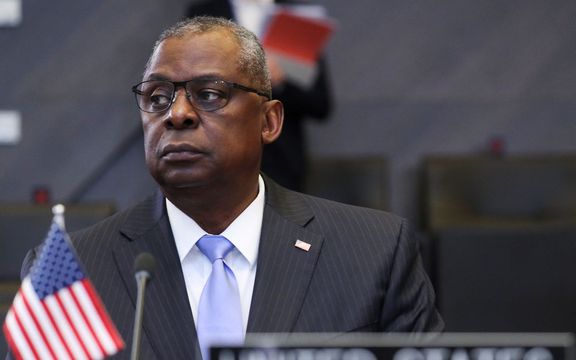
Top US defense chiefs faced criticism from the Senate Armed Forces Committee Tuesday claiming the response to Iranian attacks on US forces is weak and lacks deterrence.
Of 83 attacks in Iraq and Syria since President Joe Biden took office, just four retaliations have taken place. Last week, two attacks targeted bases in Syria killing one American contractor and injuring several servicemen.
Senator Tom Cotton, addressing the United States Secretary of Defense, Lloyd Austin, said, “What kind of signal do we think this sends to Iran when they can attack us 83 times since Joe Biden has become president and we only respond four?”
The weak US approach to Iran has been a thorn in Biden’s side as the Democrats try to keep channels open with Tehran in the hope of reviving the nuclear deal, the JCPOA. Long-running talks to restore mutual compliance with the accord broke down last year after Iranian intransigence.
Senators voiced similar criticism in another hearing on Monday.
“Maybe it's because they [Iran] know that we will not retaliate until they kill an American, which emboldens them to keep launching these attacks which kill Americans,” Cotton added.
His sentiments were echoed by Senator Jacky Rosen, who asserted that Iran’s militias are the “most pervasive threat to US and coalition forces in the region”. The Trump administration designated Iran’s Revolutionary Guards Corps (IRGC) a terrorist organization in 2019.
Austin defended the strategy, claiming that US troops — of whom there are around 900 based in Syria to keep pressure on the remnants of the Islamic State group and support the Kurdish-led Syrian Democratic Forces, which control most of the north-east — have the ability to protect themselves.
He added that lower profile local responses have been carried out which are not always made public like the four more high profile attacks, over the years, the forces having been subjected to many attacks from Iranian militias.
In tones which reflect the softly approach of the Biden administration, he stressed that responses are measured to ensure they are taken against the correct elements responsible, saying it “takes a little time to develop attribution”. He added that the Department of Defense is “doing everything that we can to protect our troops”.
The news about last week's attack did not get sent to congress for almost 24 hours, meanwhile, the issue of Iran was being debated for key policy decisions at the same time.
The attack occurred the same day that senators voted down an amendment from Sen. Marco Rubio which would have required President Biden's administration to prove that Iran was no longer providing support to proxy groups.
The delayed communication created outrage among senators who said such vital information should have been relayed immediately, allowing a better informed decision to be made. While Austin insisted the information was relayed as soon as possible, his attempts to appease congress fell on deaf ears.
“I don't believe you,” slammed Senator Cotton. “I believe that your office specifically withheld notification of this deadly strike against Americans because of the Rubio amendment on which we voted at midday directly touched on exactly this scenario, not repealing the use of force resolutions,” suggesting that the information was withheld because “the President couldn't certify that Iran was no longer attacking us in Iran and Syria”.
Lloyd denied the allegation, claiming it was “absolutely not true”, but it failed to change the anger felt by senators on the silence. "Maybe you didn't personally do it, but I believe entirely that people in your office did that,” added Cotton. Feeling the heat, Austin tried to say the delay was due to the speed with which the attack was carried out and the response put into place, apologizing, with the assurance that “we will do everything in our power to improve our performance”.
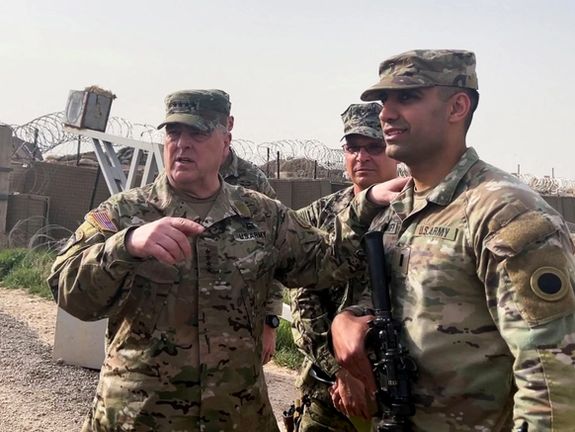
General Mark Milley, speaking at his last ever senate testimony serving as the 20th Chairman of the Joint Chiefs of Staff, assured senators when asked what is being done to proactively deter the ongoing attacks on US facilities.
While Austin had said Quds Force infrastructure was being targeted, Milley said the Department of Defense owes congress “better numbers”, the local and more low-key attacks if known, adding a better picture of the response being taken in addition to breaking down the 83 attacks from Iran’s proxies into more realistic numbers of those hitting US facilities and those landing two to three kilometers away.
“Working with our indigenous allies and partners is key,” he said and “messaging Iran is critically important”. The Quds Force and IRGC is the US’s main target, Milley added, vowing “very harsh” action now and in the future.
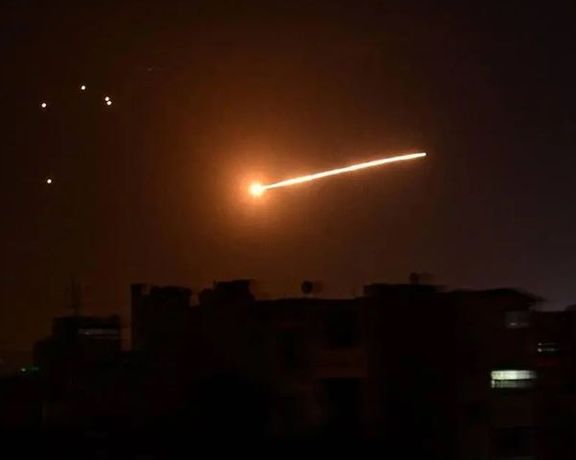
Israel launched missiles from the Golan Heights targeting the vicinity of Syria's capital Damascus, on suspected Iranian military targets.
The Syrian Observatory for Human Rights, a British-based war monitor, said it was the fifth Israeli strike on Syria this month. Israeli rarely comments on such attacks.
Israel has for several years been mounting attacks on what it has described as Iran-linked targets in Syria.
On March 22, an Israeli strike near the northern Aleppo airport put it briefly out of service. Regional intelligence sources said the attack hit an Iranian arms depot.
Iran-backed groups then fired rockets at a base hosting US forces in the northeast, killing one American contractor and wounding another, as well as several troops. The US responded with air strikes on installations in eastern Syria that it said were affiliated with Iran's Revolutionary Guard.
Tehran-backed forces, including Lebanon's Hezbollah, have established an entrenched presence around the Syrian capital as well as in the country's north, east and south as they helped President Bashar al-Assad fight back insurgents.
On Feb. 19, an Israeli strike hit a building in the central Damascus neighborhood of Kafr Sousa, killing five.
Sources told Reuters that it hit an installation where Iranian officials were meeting to advance programs to develop drone or missile capabilities of Tehran's armed proxies in Syria.
Residents of Damascus wrote on social media early on Thursday that a series of loud booms could be heard over some districts.
"I was going to die of fright," said Lana, a Syrian woman who was spending the night with her infant son in a hospital in the Damascus district of Mazzeh.
"The sound made me feel like the whole hospital was going to collapse on us," she told Reuters.
Reporting by Reuters
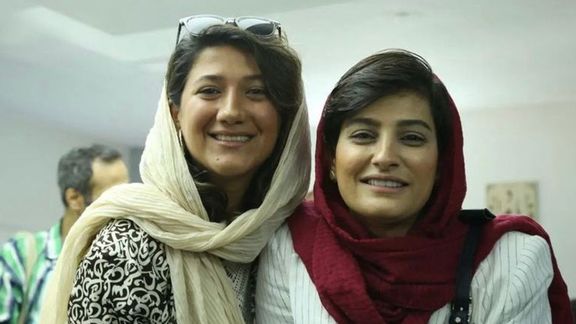
Two imprisoned journalists have been awarded Harvard’s Lyons Award for Conscience and Integrity in Journalism while they serve time for reporting the death of Mahsa Amini.
Niloofar Hamedi and Elahe Mohammadi were arrested six months ago for coverage relating to the controversial death of the young Iranian-Kurd, who died in morality police custody, sparking months of nationwide protests.
The Nieman Fellows Foundation for Journalism at Harvard University honored the journalists, who worked for Shargh and Hammihan respectively, for their “steadfast commitment to producing courageous journalism”.
“Hamedi and Mohammadi put their livelihoods and lives on the line, and lost their freedom in the process,” said the statement. “They knew the grave risks they might face but remained committed to telling Amini’s story. Journalists in Iran are risking their lives on a daily basis to report on the conditions and oppression there.”
Since the protests began around 70 journalists have been arrested and many others warned about their coverage of dissent and their public comments.
The Nieman Fellows will honor Hamedi and Mohammadi in absentia during a ceremony this spring.
The Nieman class of 1964 established the Louis M. Lyons Award in honor of the Nieman Foundation curator who retired that year after leading the institution for a quarter of a century. Lyons was a forceful advocate for freedom of the press.
The two Iranians join a long list of over 1,700 journalists from 100 countries to have been awarded Nieman Fellowships since 1938.
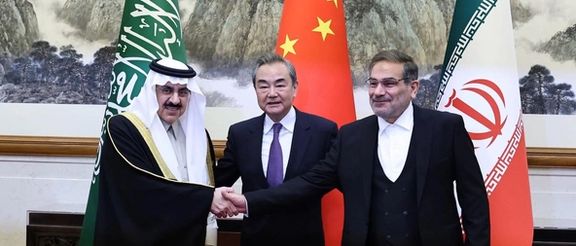
Senior Iranian regime officials are trying to dismiss criticism that the foreign ministry is not up to the job, after other top officials went on diplomatic missions.
National security council secretary Ali Shamkhani was the first official tasked by Supreme Leader Ali Khamenei to travel to China in early March and sign an agreement with Saudi Arabia to restore diplomatic relations. This was followed by Khamenei’s foreign policy advisor Kamal Kharrazi and former nuclear negotiator Abbas Araqchi traveling to Syria and Lebanon last week.
These missions did not escape the attention of local commentators who noted the absence of the foreign ministry in these high-level diplomatic initiatives.
However, Kharrazi tried to dispel criticisms on Tuesday saying there was full coordination among the regime’s institutions.
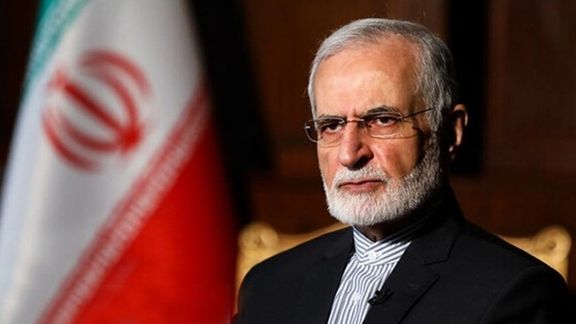
Shamkhani also visited the United Arab Emirates and Iraq this month to sort out some other issues with those countries. Kharrazi, the Chairman of the Strategic Council of Foreign Relations, a council of former diplomats that reports directly to Khamenei, said at the end of his missions to Damascus and Beirut that those who see the involvement of Khamenei's aides in foreign policy as lack of coordination did not know anything about how Iran's foreign policy works.
He called his missions to Syria and Lebanon "successful," without providing any information about the purpose of the visits. He added that doubting the foreign ministry's efficiency is not in the interest of Iran's foreign relations. Kharrazi reassurance about "coordination" contradicted the latest news about the appointment of former deputy commander of the IRGC's Qods Force Hossein Akbari as Iran's ambassador To Syria.
Former diplomat Ghasem Mohebali told Entekhab news website in Tehran Tuesday that the current situation has occurred because Amir-Abdollahian is not a political figure at national level.
Despite explanations by Kharrazi, many Iranian politicians believe that the foreign ministry has been side-lined during the past weeks. According to Mohebali, former Foreign Minister Javad Zarif had warned against the intervention of economic and security officials in foreign policy.
Mohebali said that "decisions about foreign relations and security in Iran are usually made at a place other than the cabinet,” implicitly referring to Khamenei.
He said it is a known fact that whenever foreign ministry experts are undermined or undercut, parallel organizations begin to make decisions and that is what is happening now. "First they took the nuclear issue off the foreign ministry's hands, and gradually they are taking over the ministry's other responsibilities."
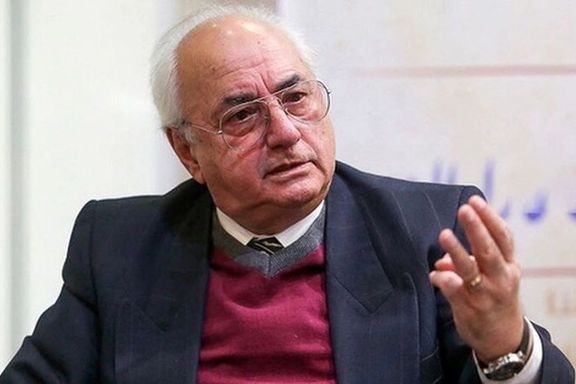
Meanwhile, another former diplomat, Fereydoun Majlesi, told Rouydad24 news website that "currently, Iran's foreign policy is being determined by fundamentalist hardliners, but ideology always makes diplomacy difficult."
He charged that Iran’s foreign relations problems have been created by strongly biased individuals who act beyond every previously declared ideal. He further added that this has also affected Iran's relations with Saudi Arabia.
"It was not Iran that made the agreement with Saudi Arabia. In fact, China and the Kingdom of Saudi Arabia as well as countries such as Iraq, Qatar, the UAE, Oman…were also involved in the political dynamic that led to the agreement," Majlesi said.
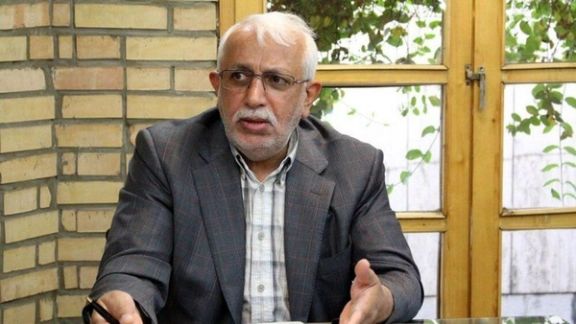
He added that perhaps some countries outside the region such as Japan, South Korea and even the United States were also involved. However, the deal was more important for Tehran than the others as it is under the pressure of sanctions and is struggling to come out of the deadlock where it is entangled. China wants safe routes for its energy and trade and likewise, the United States also wants the area to be calm and regional states also benefit from this détente.
"Iran has realized that the ideals of the Islamic revolution are not in conflict with economic necessities. It was hostage taking and war and the ensuing tensions that caused trouble for Iran." Majlesi concluded: "The economic difficulties including rising inflation cannot be solved without a revision of the statesmen's political views. They will inevitably force the officials to make compromises and come to terms with others. This was the same solution that ended the cold war."
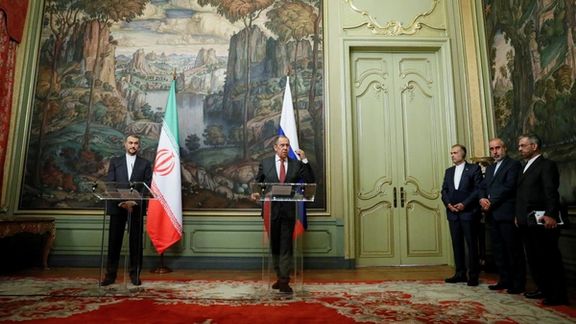
Russian and Iranian foreign ministers have exchanged views on signing a long-term strategic agreement, Tehran’s nuclear issue and the war in Ukraine.
Iran’s Foreign Minister Hossein Amir-Abdollahian met with his Russian counterpart, Sergey Lavrov, on an official visit to Moscow amid expanding military cooperation and supplies of Iranian weapons for Moscow’s invasion of Ukraine.
The chief Iranian diplomat said that talks mainly focused on economic and security ties.
At a joint press conference on Wednesday, the Iranian top diplomat stated that various avenues of relations between the two countries including economic, commercial, political, cultural, security and defense have been fully discussed.
Amir-Abdollahian further expressed readiness to sign a long-term agreement between Moscow and Tehran.
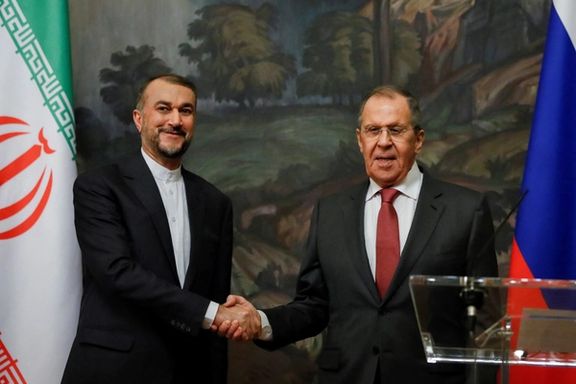
Iran and Russia had a long-term cooperation agreement signed in 2001 and renewed once for a ten-year period that lapsed in 2021. Iran has been frequently declaring that a new and more comprehensive deal will be signed, but so far Moscow has not taken action to kick off the process of talks leading to a final treaty.
The Iranian foreign minister also added that the deputy foreign ministers of the Islamic Republic, Russia, Syria and Turkey will hold a meeting in Moscow next week.
“Its main goal is to bring the views of Turkey and Syria closer. Tehran and Moscow will do their best to see this happen. If a framework is determined in the talks, the next round of the meeting can be held at the level of foreign ministers,” noted Amir-Abdollahian.
Regarding attacks on American bases in Syria last week and US retaliation, he noted that “there have been incidents in the region and unfortunately, the Americans made baseless accusations saying the attacks were launched by Iran-affiliated groups. Americans made hasty judgments before providing no documents to prove their claim. We are not looking for conflict and tension. Iran has always played a constructive role and our response to the American side was clear and decisive in the events east of the Euphrates.”

US warplanes launched retaliatory air strikes against drone and rocket attacks targeting US bases in northeastern Syria launched by proxy forces controlled by Iran’s Revolutionary Guard, the IRGC, last Thursday and Friday.
The Pentagon and the Biden administration, while reiterating their determination to defend US personnel, emphasized that they were careful in their military strikes to minimize loss of any Iranian lives and collateral damage.
Iran’s foreign minister, referring to tensions between Armenia and Azerbaijan, emphasized that Tehran rejects any geopolitical change in the region and believes that different parties should be involved to resolve issues through dialogue and political solution.
Elsewhere in his statements, Amir-Abdollahian stressed that he will meet with the Saudi Foreign Minister Prince Faisal bin Farhan Al Saud soon reminding that some differences in views are normal, but it does not prevent the reopening of embassies and consulates.
After seven years of soured political relations, Iran and Sadi Arabia signed a deal earlier this month brokered by China to resume times and open embassies in the respective capitals.
Regarding the war in Ukraine, the Iranian foreign minister said Iran welcomes the idea of the Chinese President XI Jinping regarding world peace and security.
“We welcome any initiative that leads to sustainable peace and security in the region and the world. It is important to take action in this framework,” he noted.
XI has offered to mediate between Russia and Ukraine to end the war, but Western powers have dismissed the offer, which could prolong Russia’s occupation of Ukrainian territory.